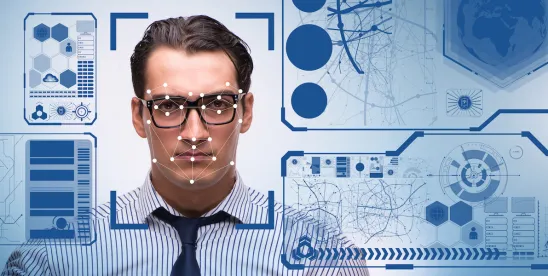This will get your attention.
Reading the briefs submitted by Facebook and the Government to the Supreme Court in connection with the big TCPA ATDS review, it is crystal clear that the TCPA was intended only to apply to pernicious technology that dials randomly or sequentially. Indeed, the case for this proposition was so compelling it was almost impossible to imagine a convincing counter-narrative.
Here’s one: Big Tech is exploiting the vast store of private information it has on Americans in a fiendish plot to blast consumers with robocalls.
Not bad. Could use an evil laugh though.
And a meaningful punchline.
Yes, the Respondents in the huge Facebook TCPA ATDS appeal went there. But then again, where else did they have to go?
Noticeably absent from Respondents’ sleight-of-hand brief is the why. Why would Facebook–of all companies–want to send rampant robocall messages to Americans as the brief constantly suggests? It just doesn’t stick. And without a proper motive the entire story unravels as quickly as that entire Daenerys-Targaryen-burns-the-city-down-for-no -eason arc.
The set up is good though. Here’s the introduction that obliquely plays on American’s noted fear of the centralization of power in the hands of corporate interests:
Facebook knows nearly everything about us: our biographical details; our relationships; our work, education, and home addresses; places we go, friends we keep, searches we make, ads we click; and much more—including our phone numbers. Facebook now asks this Court to let it and others use that information to make unwanted robocalls and texts to cellphones.
Like I said. Not bad. Except the narrative just doesn’t stick. The texts at issue in Duguid are alert messages initiated by user interactions. Facebook wasn’t trying to sell anyone anything. And its TCPA challenge isn’t about authorizing “Big Tech” to roboblast anyone anything– its about interpreting a narrowly-worded statute in a manner consistent with its plain meaning and the First Amendment.
But the Big-Tech boogie man strategy may play well given the current state of Washington D.C. We’ll have to wait and see.
Looking past the narrative and to the legal argument the brief is a bit of a yawner (sorry, not sorry).
The brief argues that the TCPA applies to all devices that store numbers to be dialed automatically, despite the fact that the word “automatically” isn’t in the definition– and the words “random and sequential number generator”– which are in the definition– should be ignored. The rationale for this stretchy stretch? Because that’s what Congress must have intended (even though there’s no direct evidence for this proposition), as can be clearly (not clearly) gleaned from a few places where the statute is otherwise vague and an assumption that Congress probably wanted to cover more than the actual problem that Congress was actually addressing when it drafted the statute.
Like I said. Yawner.
Oh and then there’s the whole “First Amendment Schmirst Shamendment” approach to the tricky constitutional angle here– but I’ll leave that to you, my gentle readers, to decipher for yourselves. I grow weary of writing on the dangerously capricious treatment of our First Amendment rights in the context of the war on robocalls.
The only other noteworthy part of the brief was this passage related to limiting the TCPA to the actual use of automated technology (i.e. a COMPLETE abandonment of the capacity issue):
the TCPA’s robocalling prohibition applies only when a call is made using an ATDS. Again, ACA International noted that a call that does not make use of the capacities that define autodialing equipment is not necessarily one using an ATDS. Id. at 704. That is, the statute may be read to prohibit only “calls made using the equipment’s ATDS functionality.” Id. Under that reading, “[e]ven if the definition encompasses any device capable of gaining autodialer functionality through the downloading of software, the mere possibility of adding those features would not matter unless they were downloaded and used to make calls.” Id.
This is a really interesting play. By giving up on “capacity” whole heartedly the Plaintiff’s bar is essentially losing the argument that manually dialed calls made with a system having the capacity to serve as an ATDS qualify under the TCPA. Hence the rule of Morgan would be dead and a certain level of sanity would be instantly restored to the TCPAWorld.
I can’t tell if this argument smacks of desperation or is just a move to appear reasonable. It does, however, align with the Sixth Circuit Court of Appeals approach— which might offer something of a middle ground approach if the Supremes are looking for a bail out on the primary issue. So maybe its a bet hedge.
Interesting play no matter what though.
So there you have it.
In the end the battle for the TCPA’s soul–like all good existential battles– appears to come down to pathos vs logos. Will the universal disdain for robocalls coupled with the trendy beltway distrust for “Big Tech” overpower the cool and calculating (and undeniable) logic and well-tread statutory interpretation principles that compel a narrow read of the TCPA?
We should know a lot more come December 8, 2020.
For now here is the brief: Duguid Brief Final
Enjoy!




 />i
/>i

